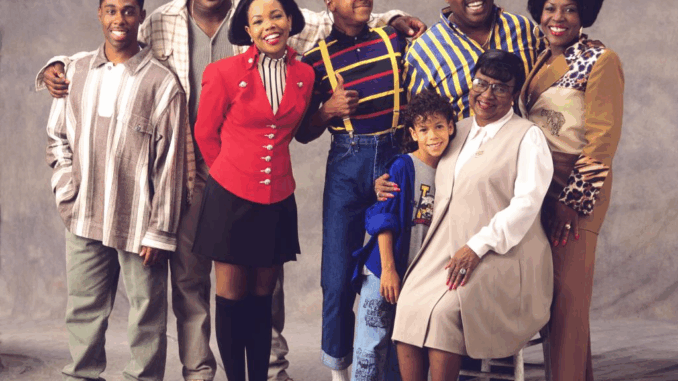
In the landscape of 1990s television, Family Matters stood out not just for its humor but for its portrayal of a Black family navigating everyday life. The Winslows, led by Carl and Harriette, became a symbol of middle-class Black America, challenging stereotypes and offering a fresh perspective on Black family dynamics. This article delves into how Family Matters influenced Black representation in media, its cultural impact, and its legacy in shaping future narratives.
A New Era of Black Sitcoms
The 90s: A Golden Age for Black Television
The 1990s witnessed a surge in Black-led sitcoms, with shows like The Cosby Show, The Fresh Prince of Bel-Air, and Martin leading the charge. These series provided a platform for Black actors and writers to tell stories that resonated with a broad audience. Family Matters joined this movement, offering a unique blend of comedy and heartfelt moments that highlighted the complexities of Black family life.
Breaking Away from Stereotypes
Prior to these shows, Black characters on television were often relegated to stereotypical roles. Family Matters broke this mold by presenting the Winslows as a loving, middle-class family dealing with relatable issues. This portrayal was a departure from the often one-dimensional characters seen in earlier television.
Cultural Impact and Legacy
Representation Matters
For many viewers, Family Matters was more than just entertainment—it was a reflection of their own lives. The show’s depiction of a Black family in a positive light offered a sense of pride and validation. As one fan noted, the show felt like an extended family, providing comfort during challenging times .
Influence on Future Media
The success of Family Matters paved the way for future Black-led sitcoms. It demonstrated that there was an audience for stories centered around Black families and experiences. This influence can be seen in later shows that continue to explore Black narratives in diverse and nuanced ways.
Challenges and Criticisms
Typecasting and Industry Expectations
Despite its success, Family Matters faced challenges, particularly concerning the character of Steve Urkel. Actor Jaleel White, who portrayed Urkel, discussed the pressures of being typecast and the industry’s expectations of Black characters. In his memoir, White reflects on how his character was sometimes viewed through a narrow lens, limiting the scope of Black representation on television .
Balancing Humor with Social Commentary
While the show was primarily a comedy, it occasionally addressed serious issues such as racism, class, and identity. This balance between humor and social commentary added depth to the series and sparked conversations among viewers about the complexities of Black life.
Conclusion
Family Matters played a pivotal role in reshaping Black representation in media. By presenting a multifaceted portrayal of a Black family, it challenged stereotypes and provided a platform for diverse narratives. Its legacy continues to influence television today, reminding us of the importance of representation and the power of storytelling.
FAQs
1. How did ‘Family Matters’ impact Black representation on television?
Family Matters offered a positive portrayal of a Black family, challenging stereotypes and providing a platform for diverse narratives in media.
2. What challenges did the show face in terms of representation?
The show faced challenges such as typecasting and balancing humor with social commentary, which sometimes limited the scope of Black representation.
3. How did ‘Family Matters’ influence future Black-led sitcoms?
The success of Family Matters demonstrated the viability of Black-led sitcoms, paving the way for future shows that explore Black narratives in diverse ways.
4. What role did Jaleel White’s character, Steve Urkel, play in the show’s legacy?
Steve Urkel became an iconic character, though actor Jaleel White has discussed the pressures of being typecast and the industry’s expectations of Black characters.
5. Why is representation in media important?
Representation in media allows for diverse stories to be told, fostering understanding and challenging stereotypes, which is crucial for a more inclusive society.
